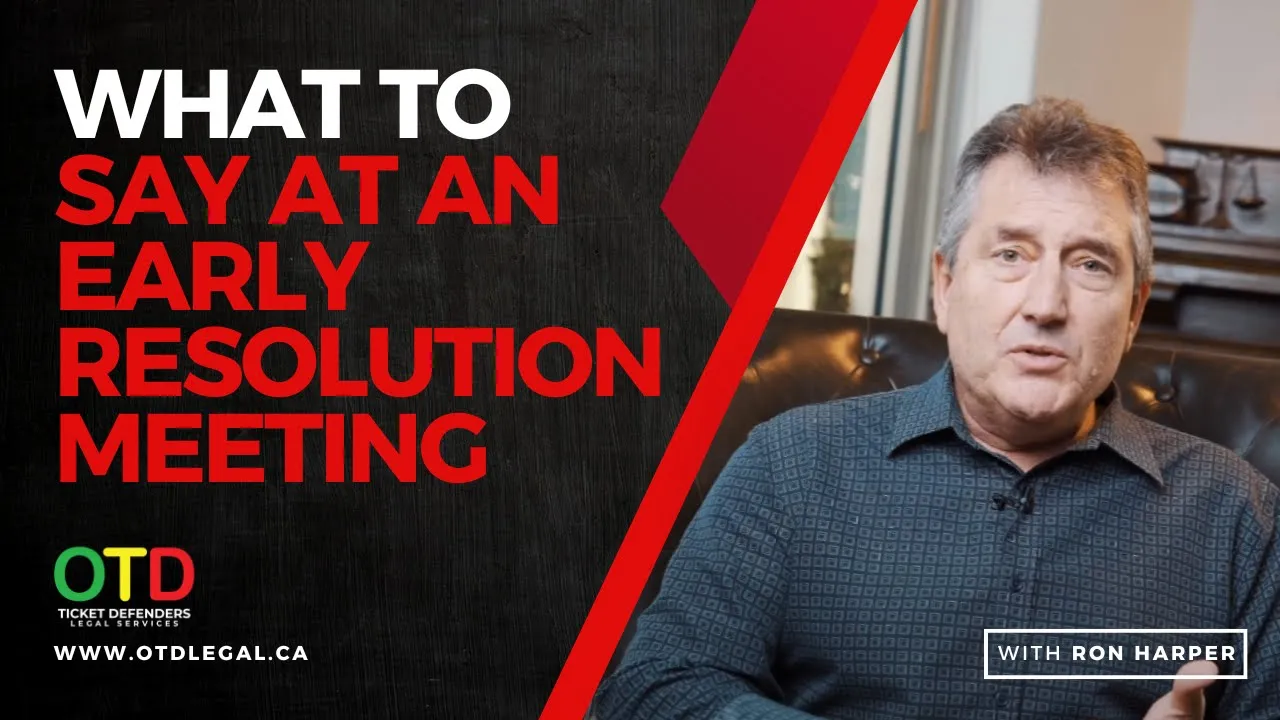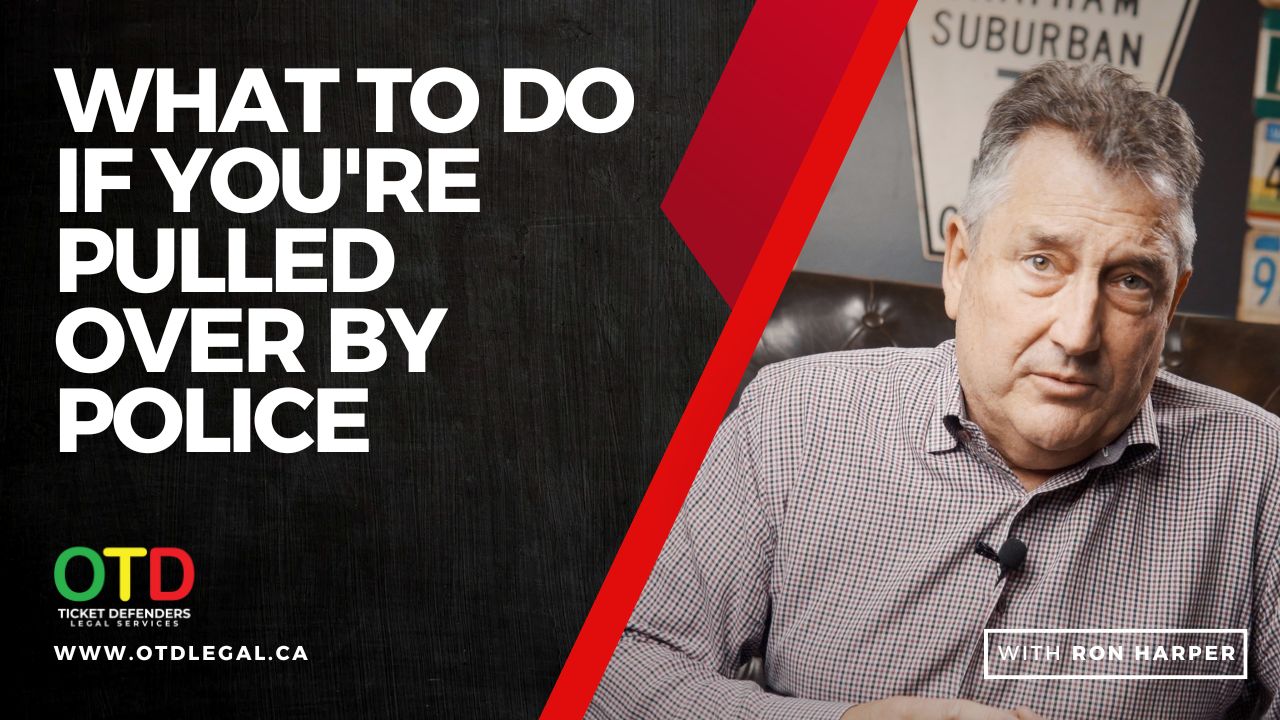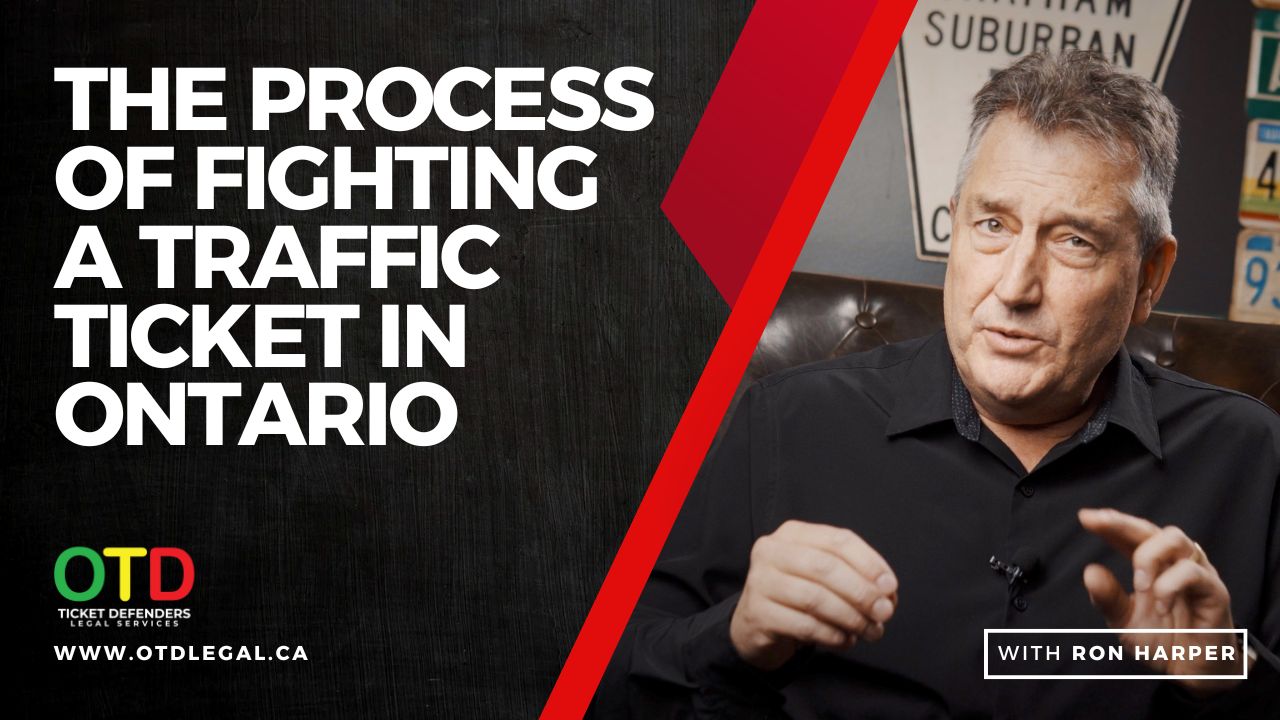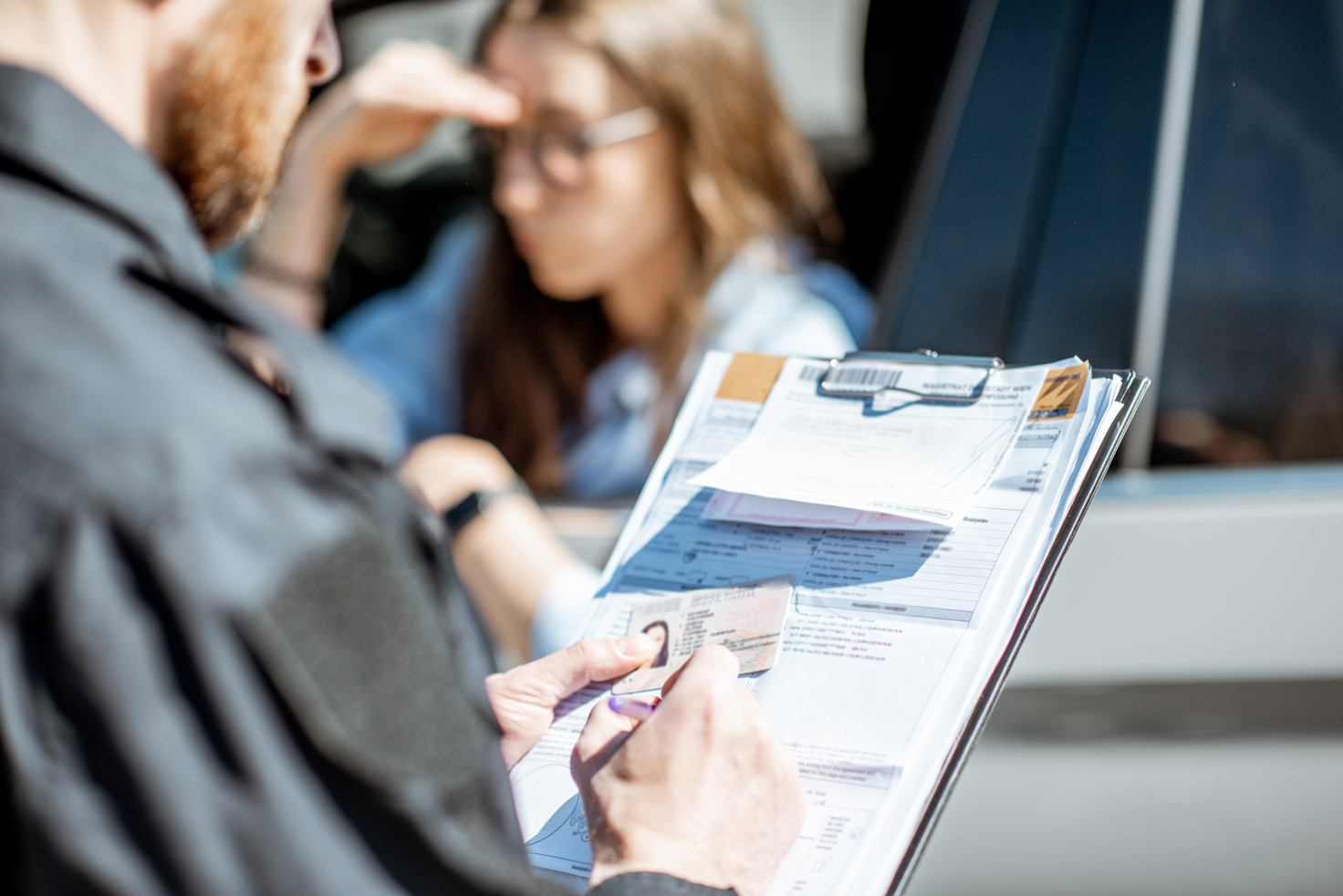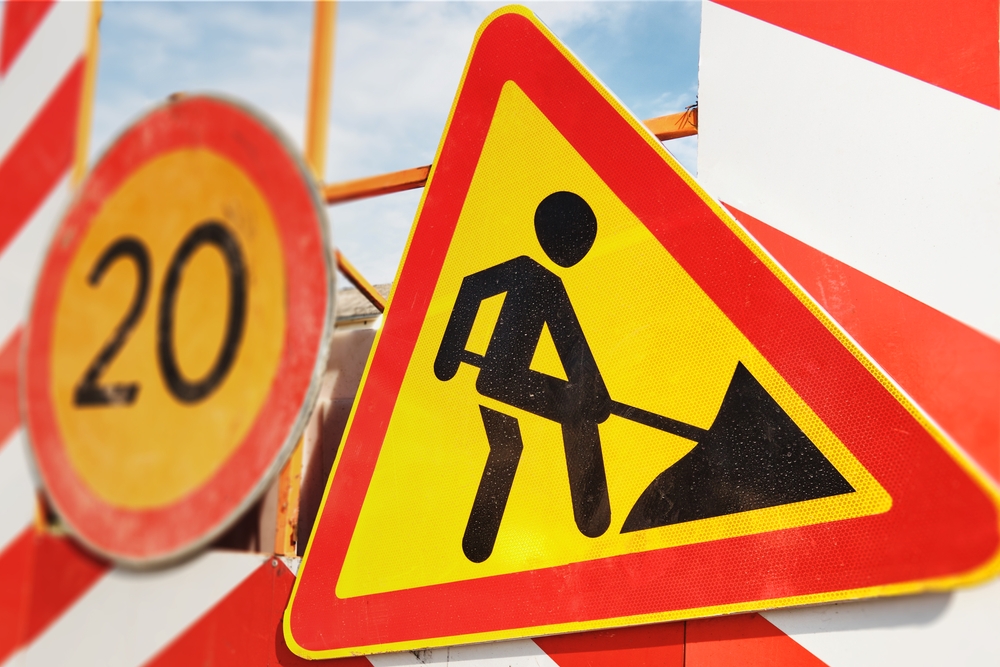When a police officer signals you to stop, pull over safely and use your turn signal. Once stopped, stay in your car unless instructed otherwise. Then, prepare your driver’s license, vehicle registration, and proof of insurance. These are commonly requested documents during a traffic stop.
During the police encounter, remember that you have the right to remain silent. This doesn’t mean ignoring the officer, but rather providing only the necessary information. Answer their questions briefly and avoid giving any extra details that could unintentionally incriminate yourself.
For instance, if you’re stopped for speeding, it’s not the time to explain past speeding incidents or discuss other unrelated issues. Doing this could lead to admitting to a traffic violation that the officer wasn’t even aware of before.
Traffic law in Canada requires you to provide specific details during a traffic stop. So, do not argue or make excuses. This is not the time to fight your ticket. If you believe the ticket is unfair, you can address it in court on your assigned court date.
Stay mindful of your rights under the Canadian Charter of Rights and Freedoms, particularly Section 11(c), which protects you from self-incrimination. This can be important during traffic stops if you feel overwhelmed or uncertain about what’s being asked.
Should the officer issue a speeding ticket or any other form of penalty, accept the document calmly. Reading through it can help you understand your rights and next steps more clearly.
Here’s a brief checklist to help guide you during a traffic stop:
- Pull over safely and indicate with your turn signal.
- Stay in the car and wait for the officer.
- Have driver’s license, registration, and proof of insurance ready.
- Answer only the questions asked.
- Avoid discussing unrelated violations or offering additional information.
- Keep calm and maintain respect throughout the interaction.
- If issued a ticket, follow up with appropriate legal channels later.
By sticking to these guidelines, you can handle traffic stops more effectively. Sometimes, it’s about providing the minimum necessary detail and not trying to argue your case on the spot. If you believe the stop was unjust, you always have the chance to contest it with professional help, like the services provided by OTD Legal.
Video Transcription:
I want to talk to you today about a question I often face, and that is what not to say when you’re pulled over—when you’re talking to the police at the side of your vehicle, for example. It is important that you do engage with the police. They have a job to do, they have questions to ask, and they need some answers. Otherwise, you’re going to appear to be needlessly difficult.
It is important to realize that you don’t want to talk too much. You want to tell them the answers that they need. For example, they’re going to ask you for your driver’s license, ownership, and insurance. Those are things we have an obligation to provide, and you should work towards providing them to the officer in a very timely manner.
Usually what happens—and should not, frankly—is that when the officer is at the side of your vehicle, you try to explain whatever may have happened. An interesting example is that I had a client one time who was pulled over for the simple error of speeding, but he was so concerned about another issue that the officer knew nothing about. He thought he was getting pulled over because he didn’t have insurance, which is a very serious charge. So my client starts to tell the officer why he didn’t have insurance, and the result is that now he has a speeding charge and a no insurance charge. Had he just remained quiet, he probably would have only received a minor speeding ticket with nothing else to worry about.
That’s a solid example of why you want to remain calm and just deal with the questions the officer asks. Always be polite and try to be professional. Whatever happens, this is not a good time to try to talk your way out of the ticket. There’s an instinct among clients—and probably all of us—that if we can just explain ourselves at this point in time, we should be able to get out of the situation we’re in. I can tell you, that’s probably the worst mistake you can make.
So again, be quiet, provide just the information that you need to answer the questions, and be respectful.


